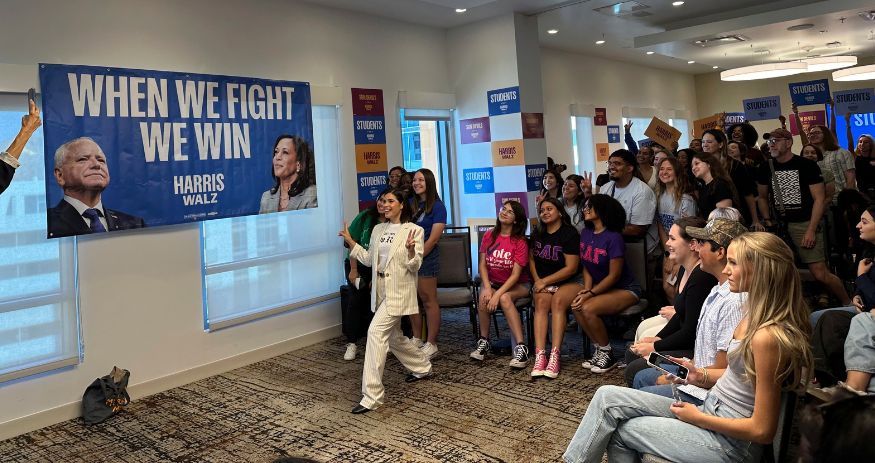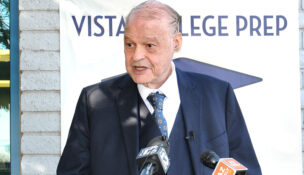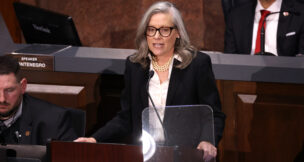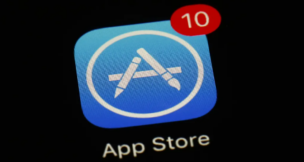State universities deny claim Harris campaign improperly obtained student data
Howard Fischer, Capitol Media Services//October 7, 2024//
State universities deny claim Harris campaign improperly obtained student data
Howard Fischer, Capitol Media Services//October 7, 2024//
The state’s three universities say the head of the Senate Government Committee is off base with his claims they are illegally selling data about their students.
Representatives of the schools, as well as the Arizona Board of Regents, say there is no legal basis for the charge by Sen. Jake Hoffman that they did anything wrong in furnishing information that allowed Kamala Harris to send out tens of thousands of text messages urging students to vote for her. In fact, they say, the universities are required by federal law to make that information public unless students opt out. And just a handful have done that.
None of that is satisfying the Queen Creek Republican.
“The breach of students’ personally identifiable information to a political campaign raises serious ethical and legal concerns,” Hoffman told Capitol Media Services. He also said that similar information has previously been denied to the Trump campaign, though Hoffman said his evidence comes from “firsthand conversations.”
He promised to open “a full Senate investigation immediately.”
The fuss is over a text that went out from Harris.
“I wanted to remind you that the deadline to register to vote in Arizona is Monday, Oct. 7,” she says in the text.
“Tim Walz and I are the underdogs in this election, but student voters could make the difference,” the Democratic nominee for president continues. “We need your support to win.”
It also tells the recipients that they can register and vote using their on- or off-campus housing address.
That has been a legal sore point among at least some Republicans for years.
In fact, Bob Thorpe, at the time a state representative from Flagstaff, introduced legislation in 2020 that would have spelled out that anyone who is living in a dormitory “or other temporary college or university address” is presumed to be there only temporarily and is there “with intent to return to some other permanent address.”
And a separate provision would have banned ban the use of any address “at which the individual does not intend to reside for 12 months of each year.”
The measure failed to even get out of a single committee.
Hoffman he did not respond to questions about whether his concern was that university students – including about a third who are from other states – would be voting in what could be very close races here in Arizona.
Mitch Zak, spokesman for the University of Arizona, said any claim of illegality in releasing the data has no basis. In fact, he said, the reverse is true.
“Organizations can request directory information through the University of Arizona Office of Public Records,” said Zak.
“Under federal law, directory information is not considered private unless students opt to withhold it from public disclosure,” he said. “Students can make this election at any time through their online student portal.”
That’s also the position of Jerry Gonzales, a spokesman for ASU.
“The contact information of enrolled students (including their cell phone numbers) is a matter of public record,” he said. And Gonzales said this is not a question of university policy. Instead, he cited the federal Family Educational Rights and Privacy Act.
“Under FERPA, it is considered ‘directory information,’ along with other basic information like the student’s major, dates of attendance, and enrollment status,” he said.
Nor, said Gonzales, is this unusual.
“It is common for entities that want to advertise to ASU students to request this publicly available contact information – everything from apartment complexes, to credit cards, to political candidates,” he said.
And the list, according to ASU, is broad.
Dormify, which sells decor and organizational items for dorm rooms, got a list. So did Rolling Rock Boutique, which sells women’s clothing, and Side Shift, which has a bulletin board of job postings.
Even the U.S. Navy has obtained a list to find recruits.
Zak said there were similar requests for information at U of A. Ditto at Northern Arizona University.
Less clear is exactly who purchased the list.
Representatives at the universities said they have no record of a request for the data specifically from the Harris campaign. That raises the question of whether it was obtained from some third party.
Hoffman says that “raises deeply troubling questions about the lack of data security.”
A spokesman for the Harris campaign in Arizona declined to comment.
But the universities say it is irrelevant who actually purchased the list: As long as it is a public record, it is open to anyone. The only difference, they said, is the cost.
The University of Arizona charges $165 per 1,000 names provided. But if the request is for a commercial purpose – someone selling something – there is an upfront $4,000 cost plus the per-name figure.
ASU and NAU have a flat $400 fee for noncommercial use; commercial requests have a $4,000 fee plus the per-student rate.
And if the request comes from a candidate or political party it is considered not for commercial use. It would only be considered if it is sold to an outside political consultant or someone else who then made a profit by selling access to the names.
What also is true is that each school allows students to opt out of having their information sold.
At the U of A, officials said 431 of the approximately 71,000 students in the database have asked that their cell phone numbers not be distributed.
ASU says there are 1,161 students with a “directory hold” out of nearly 153,000 currently enrolled. And for NAU, there are 269 opt-outs out of 27,250 students in the database.
The text sent out directs individuals to a website paid for by the Democratic National Committee, where individuals can then link to sites run by the state to let them sign up to vote online or check their registration status.
Harris clearly believes the students can make a difference in what is expected to be a close race for Arizona’s 11 electoral votes.
“Thanks to record turnout among college students in 2020, I am vice president of the United States today,” her text reads.
There is other evidence that those who vote where they go to school can influence elections.
Thorpe, in his 2020 legislation, cited a 2016 vote by Flagstaff residents to increase the minimum wage that has to be paid by city employers, a measure Thorpe opposed. It was approved by a margin of 54-46 percent.
But in precincts around the Northern Arizona University campus, it passed with a 2-1 edge. And the figure was closer to 3-1 at two precincts which actually included parts of the campus, including dormitories. And that was enough to override the vote of some residential precincts where the measure failed.
While the Harris campaign would not comment about the texts, Tony Cani, a Democratic political consultant, took a swat at Republicans for even questioning why any candidate would not reach out through the technology of cell phone texts to potential voters.
“I know Republicans in Arizona are ages behind when it comes to modern campaigning,” he wrote on social media. “But their ignorance doesn’t excuse this absolute lie that text messages like this asking students to register to vote is 1) election interference and 2) somehow against the law.”














































